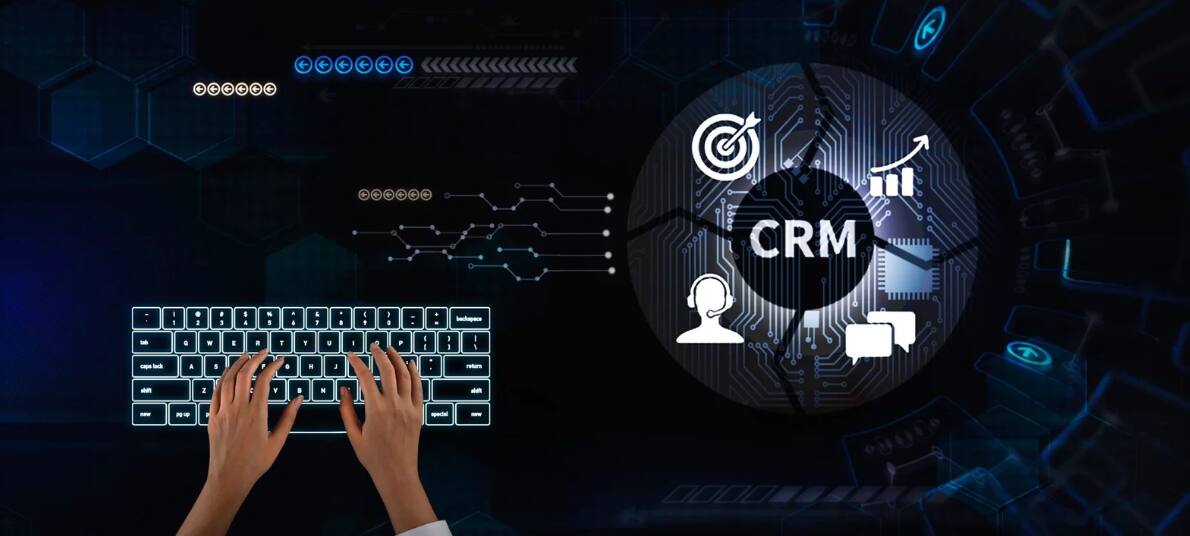Customer relationship management software has revolutionized how companies operate in regard to interaction with their customers, enhancing work execution and improving overall productivity. With CRM software, companies of any size have access to a centralized place of customer data, hence making it easier to provide quality service and build strong relationships with such customers. This guide is all about unlocking the power of CRM software, showing how it can be a potential game-changer for your business.
It is for this reason that in this article, we are going to study what CRM software is, its value, and how you can go about choosing the best CRM system for your needs. By the end, you will have a full understanding of CRM software and how to use it effectively.
Table of Contents
ToggleWhat is CRM Software?
Basically, CRM software is a solution used by a business to manage customer information, track sales leads, and facilitate smooth communication between teams. It centralizes customer data so that it can be used easily by members for accessing and leveraging useful information about each particular client or lead.
Key Functions of CRM Software
CRM software supports all sorts of functions that enable a business to engage with its customers more effectively:
- Customer data storage: The CRM software stores all customer information in one place, such as contact details, history of contact, and even the purchase made.
- Tracking of Sales and Lead: CRM software follows up in time and accurately through the tracking of leads and opportunities.
- Communication tools: Most CRMs have integrations with email or scheduling software tools capable of making outreach and follow-up almost seamless.
- Reporting and Analytics: It provides valuable reports to a CRM that help managers understand the performance of the team, sales trends, and customer preferences.
Types of CRM Software
Understanding different types of CRM software will help in the selection of the right solution.
- Operational CRM: The focus is on customer-based operations, such as sales, marketing, and customer service.
- Analytical CRM: Used to collect and analyze information about the customers, which is a deeper understanding by the business of the behaviour and preferences of the customers.
- Collaborative CRM: The strategy in this area aims at improving communication between the sales and support departments to make sure that customer service remains uniform.
You may also like: Missed Call Text Back Software Free.

Why is CRM Software So Important?
Living in today’s competitive business environment, the ability to relate well with customers is a necessity. Unlocking the power of CRM software will enable any business to deliver personalized customer experiences, manage leads, and maintain workflows efficiently. Here’s why:
1. Improved Customer Service
CRM software allows teams to view the entire history of each customer’s preferences and past interactions. Such knowledge enables them to provide quick responses, personalize interactions, and ensure customers feel important.
2. Improved Sales Performance
CRM software helps the sales team work smarter by organizing all the data related to customers and automating some tasks. They can identify the most promising leads, manage the follow-up process efficiently, and thus, increase their chances of closing a deal.
3. Better Marketing Strategies
The marketing teams can use the CRM data to run focused campaigns according to the interest and purchasing habits of the customers. Since the application allows tracking the effectiveness of campaigns, one can quickly adjust to improve results.
4. Better Customer Retention
CRM software helps the company keep in close contact with customers through timely follow-up or even proactive contact. Understanding the needs of the customers and addressing them always helps the CRM software to build long-term loyalty amongst customers and prevent customer attrition.
What to look For in CRM software:
Third-party CRM systems are selected based on the features that will best benefit a company. Well, here are some of the core features you would want to consider when unlocking the power of CRM software:
- Contact management: The use of a CRM for easily storing and pulling customer information should not be hard to find. Contact management is at the center, whereby your group should have the ability to draw on immediate detailed profiles and past conversations.
- Lead and Pipeline Management: Systematic tracking of potential leads by sales teams across each step of the pipeline. It becomes imperative for prioritizing high-value prospects and scheduling follow-ups.
- Email Integration: Most CRMs allow for integration with your email account so that you can work from within the CRM interface. This makes outreach a lot easier and helps with the tracking of responses.
- Automation: Automation helps save time by performing repetitive tasks, and this would include automatic follow-up reminders, data entries, and workflows in marketing.
- Reporting and analytics: Robust analytics on sales performance, customer preferences, and effectiveness of marketing will provide valuable insights. These reports will support data-driven decisions which may be required to improve operations.
- Mobile access: The facility of mobile access allows teammates to access the CRM features from anywhere in the field. This especially helps sales representatives who need information while on the road or in a client meeting.
How CRM Software Improves Business Efficiency
In any business-related endeavor, efficiency is of utmost importance. And getting ahold of the power of CRM through the software platform can actually help in being productive. The CRM software will help to streamline the functions in the following manner:
Streamlined Communications
CRM software acts like an all-in-one core for customer data and helps team members obtain better information. This minimizes the chances of miscommunication, keeps everybody on one page, therefore increasing collaboration between different departments.
Faster Sales Cycles
Organize and track leads with the purpose of reducing the selling cycle. It will enable the sales representatives to quickly determine the position each lead may have in the pipeline, therefore providing the exact timing for follow-up so they could close sooner.
Data-Driven Decision Making
CRM software generates reports that represent performance metrics in a very clear manner. Managers, after analyzing this data, can make better decisions regarding strategy and resource allocation.
Improved Customer Experience
With this kind of customer insight, your team can give much better service-from personalized offers to timely support. With CRM software, businesses can let their customers experience a feeling of trust and loyalty.
Common Misconceptions about CRM Software
There are some common misconceptions despite the benefits involved in CRM software. Let’s clear some of them:
- Only large businesses need CRM: Many small enterprises have a belief that CRM software cannot fit into their budget or isn’t sophisticated enough for them. The thing is, though, almost all CRM systems take small companies into consideration and thus offer reasonable, scalable options for use.
- CRM is a sales tool: While CRM software helps facilitate this for sales teams, marketing and customer service will also have support from it, and even the HR departments. Its functionalities can help different departments collaborate with each other and improve the overall customer satisfaction.
- Difficult to implement and use: Today’s CRM systems are friendly to the user, normally contain support and training, and many also have options for the customization and adaptation of CRM to the particular needs of each business or organization.
Choose the right CRM for your business
Unlocking the power of CRM software starts with choosing the right one. Consider these factors to make the best choice:
Determine Your Goals
Determine what you are trying to achieve with a CRM. Is it better customer support, an improved sales process, or organized communications? Defining your goals will guide your selection.
Evaluate the User Experience
A good CRM should be intuitive. Look for a tool that has a clear interface-intuitive design-so using it won’t consume too much of your team’s learning time.
Check Integrations
Get the most from your CRM software by ensuring that it plays nicely with the other tools you use to run your business, be those email platforms, e-commerce systems, or social media management tools.
Assess Scalability
Your business is growing, and so is your need for CRM. This is the time to find a CRM that can scale up with you and support an even bigger team or database.

CRM Best Practices to Drive Most Value
It takes much more to work with CRM software than just to install it. Following are some best practices for getting the most from your CRM:
- Clean data: Updating customer information on a regular basis keeps the data fresh. Unclean data creates confusion and disorganization not only within the teams but also when dealing with time.
- Automate where possible: Use automation in the CRM for email reminders, follow-ups, and data entry. It frees up more time for the team members to focus on high-priority activities.
- Regular monitoring of CRM performance: Avail of CRM reports to monitor performances in order to adjust your strategy based on what works and what doesn’t.
- Encourage team adoption: The whole team should understand and be able to use the CRM to its fullest potential. Training is necessary but get them to continue using it so the benefits will be optimized.
- Improve constantly: As your business grows, so does your need for CRM. Be prepared to try new features and refine processes from time to time.
CRM Trends and Future Outlook
The CRM industry is rapidly evolving, with several trends shaping the future of CRM software:
- Artificial intelligence and machine learning: With the help of AI-powered CRM, businesses will be able to predict customer behavior and therefore automate even more tasks, making the tool even stronger.
- Social CRM: It’s a trend to integrate social media so that the business can track customer interactions happening on social platforms directly inside the CRM.
- Voice Recognition: Few CRM systems these days feature voice-enabled functionality-allowing a user to update records and perform data searches in a rather hands-free manner.
- Personalization: Most CRM systems these days allow businesses to provide personalized experiences to each of their customers.
FAQ’s: Unlocking the Power of CRM Software
What is the main purpose of CRM software?
The main goal of CRM software is to support businesses with the organization of interactions by structuring data and improving communication with clients. This strengthens customer relationships and boosts productivity.
In what ways does CRM software help small business owners?
CRM software streamlines processes, improves customer service, and increases sales for small businesses. It makes available options and affordability to meet the needs of a small business and assist in competing more effectively.
Does CRM software allow integrations with other business tools?
Yes, most CRMs would have integrations with e-mail platforms, e-commerce software, social media tools, and many more. Integrations help streamline operations and keep data centralized.
Is CRM software secure?
Security is a priority for CRM software vendors, who provide encryption and two-factor authentication, among other security features to safeguard customer data.
What is the future of CRM software?
Along with better usage of AI-powered features, there will be more complete integration of CRM software with social media, along with better personalization. These are some of the trends that will add more value to CRM in business.
Conclusion
Unlocking the power of CRM software can drive significant improvements in customer relationships, sales performance, and operational efficiency. Putting customer information into one place, automating routine activities, and providing precious insights, CRM software lets teams work smarter and achieve better relationships with customers. Whether running a small business or a large enterprise, the implementation of the right kind of CRM solution should be able to support long-term growth and success.
Also read How AI Can Maximize Your CRM: The Future Of Customer Relationship Management.





